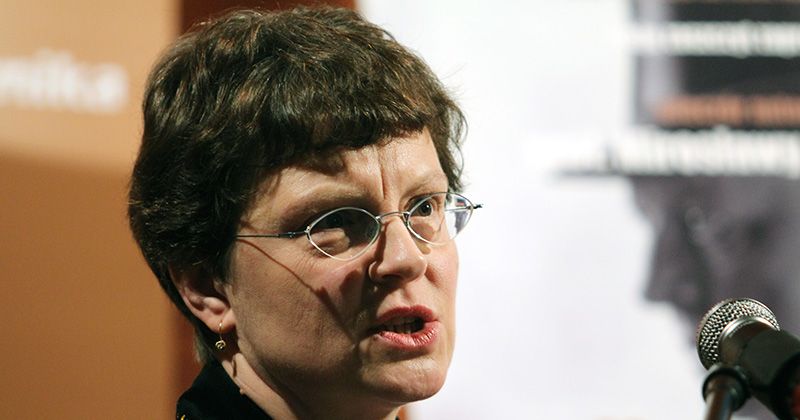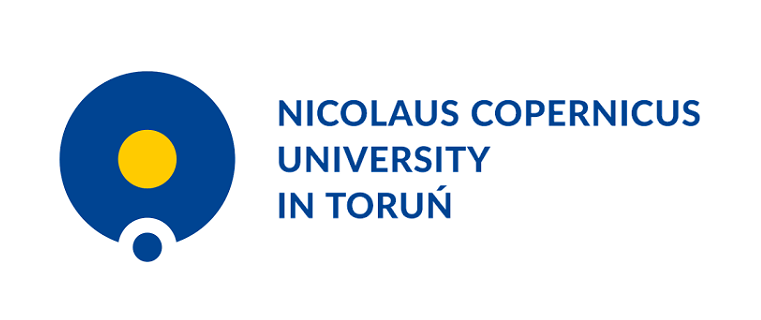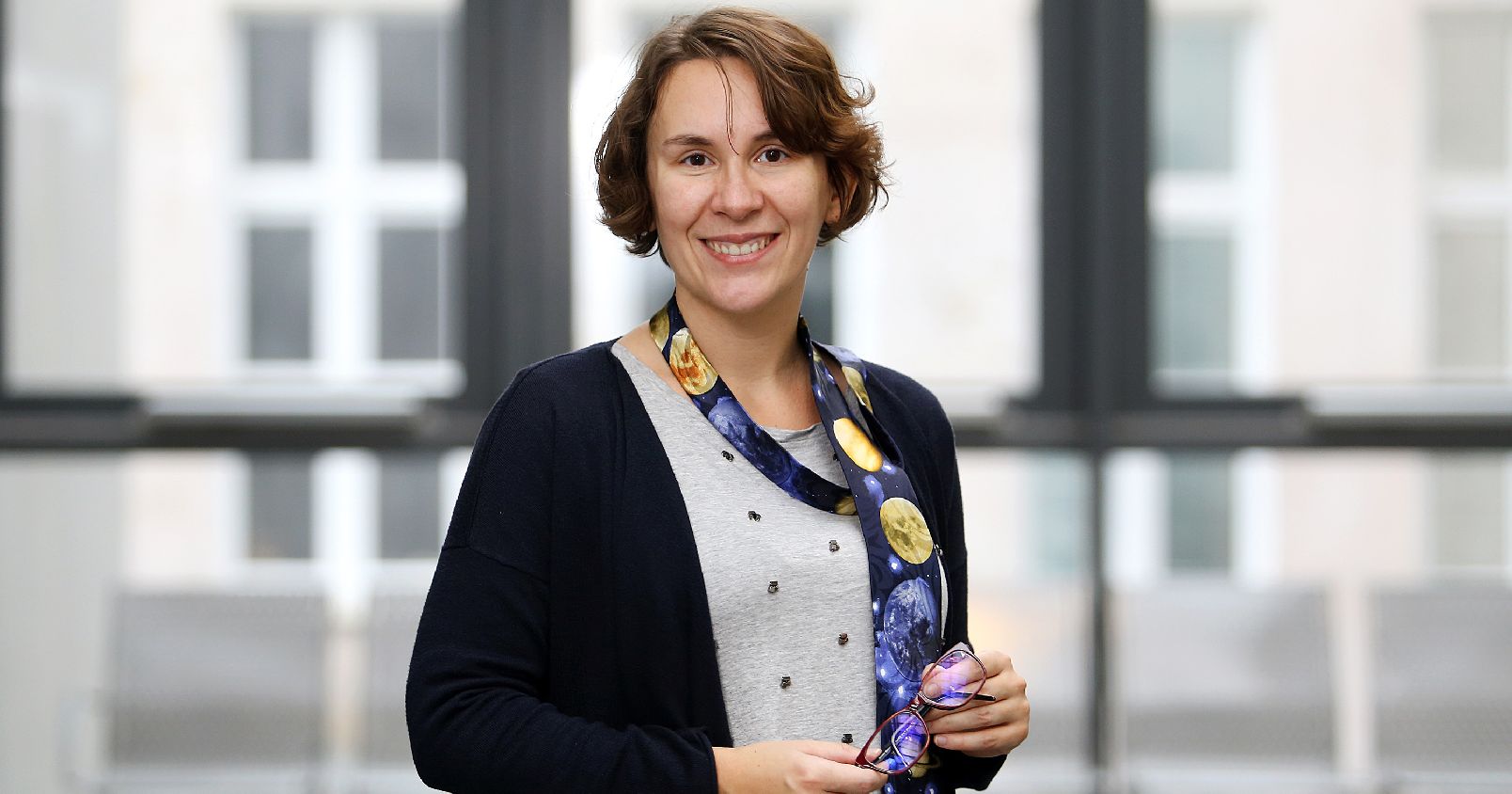 Humanities and arts
Humanities and arts
The Nobel Prize in Literature should bring us a lot of joy
- This highly deserved Noble Prize for Louise Glück is a double award: for her individual talent and continuation of tradition. The one who enjoys thinking will find happiness in her poetry – this is how professor Mirosława Buchholtz, dr. habil. from the Chair of American Literature and Literature Interpretation, NCU comments on the decision of Swedish Royal Academy of Sciences.
This year’s Noble Prize in Literature was given to an American poet and essay writer - Louise Glück. Swedish Royal Academy of Sciences appreciated her for "unmistakable poetic voice, the raw beauty of which transforms an individual existence into general experience".
This author is little known in Poland – so far, only three of her poems in American women poets` anthology have been published in our country. We have asked professor Mirosława Buchholtz, dr. habil. from the Chair of American Literature and Literature Interpretation to comment on the works of "the youngest" Noble Prize winner and the award itself.
As always at the beginning of October, I was wondering who will be awarded with the Noble Prize laur this time. I had a feeling (the same for a few years) that it is the time for the United Stated, a woman, and poetry. As everyone can notice this algorithm is not too complicated and does not require any artificial intelligence. Ordinary human intelligence, especially emotional, will suffice in this matter. Et voila, now we have Louise Glück, a poet, born in 1943.

lIl. Niklas Elmehed © Nobel Media
The Noble Prize for Bob Dylan in 2016 did not cause high sky satisfaction among Americans. Anyone that I asked to make a comment on that seemed rather embarrassed with the decision and would quickly change the topic.
A woman’s voice from USA was first appreciated in 1938 in the person of a not-remembered today Pearl Buck (whose second home was Asia, in particular China), and since 1993, when the prize rightly (without any doubt) went to an Afro-American Toni Morrison, who died in 2019, Glück is only the third winner of the Noble Prize in Literature and the first woman poet. Therefore, the decision of Swedish Academy is rightful also in a symbolic context. Similarly to the Canadian story writer, Alice Munro, whose stories were awarded in 2013, this time American poetry written by a woman was appreciated.
In the United States, Louise Glück is awarded and distinguished. She studies in her home city, at Columbia University. She gives lectures on poetry in the best American universities, and recently in Yale. Her bio seems to demand from a reader: intellect and prestige, but a Master’s degree in literature is not a requirement to read her poetry.
Three poems „Eros”, „Time’, and “Fable” translated by Julia Hartwig can be read in “Anthology of American Women Poets. Wild Peaches”. And that is all for the time being as translators, especially women translators, for sure have engaged in this undertaking and will soon turn out with further translations.
I especially recommend "Fable" (five lines) which begins with the words: "Then I looked down and saw…". Whoever wants to experiment with their English, may study the website of Poetry Foundation and choose one of the poems there.
Her bio seems to demand from a reader: intellect and prestige, but a Master’s degree in literature is not a requirement to read her poetry.
I suggest skipping all those shallow descriptions of her poetry, all this critical literary prêt-à-porter, which suits everyone but does not introduce anything essential. One must read poetry, not about poetry. English Studies students, who come to the classes on American poetry, advocate that in fact they are not interested in poetry, and a few years later they send by email their own poems (very good poems) and they write or say how important poetry is for them. There is no point in accepting or repeating after critics’ opinions. Poetry has to be experienced on one’s own. Louise Glück makes it possible.
Let us take, for instance "Aboriginal Landscape" from 2013. It begins surprisingly with the lyrics: "You are stepping on your father, my mother said". A person who is alone on a graveyard hears this voice and wonders where it comes from as there is no one around. And later, the person hears some strange moan, both of a human and a dog. The person does not remember how he or she happened to have arrived at this place and what kind of place it is: a graveyard or a park. The person is alone and has no idea how and why the others have sneaked away. Where are the cousin and the sister, Caitlin and Abigail? Where is the car that will drive the person off the place? The night is coming and it is necessary to go home. The person runs towards a small barely visible train in a distance without even looking who she/he is stepping on. The person undertakes negotiations with the train driver politely but firmly. And here the way and the tracks end as the man states in a serious manner though his face seems very gentle. He is not going to drive the person to the town, and in the last line of the poem, he adds: "the town is where I disappear".
This is an apparently simple story which reflects the spirit: loneliness, confusion, fear, desire to return to some place (meaning somewhere concrete and safe), but we still do not know and must speculate on our own who the father and the train driver are, what kind of place it is, and why the return journey is impossible, and what is probably the most important, what the term "aboriginal" means: primary in a descriptive sense or aboriginal in the sense of ideology? Is the train driver the same person who appears in the famous poem by Dickinson "Because I could not stop for Death"? Whoever likes thinking will find joy in Glück’s poetry.
The poetic statistics of her poetry is fairly simple: she has had a dozen volumes with poems published and two series of essays. However, to make synthesis is risky as, even though they are collected in volumes, the poems get scattered proving only the unavoidable poetic entropy. To catch the individuality, comparisons will help. What is there in Louise Glück’s poetry which other poets do not have?
The comparisons are all the more justified as, together with Louise Glück – as I see it- the Noble Prize is awarded to the long and beautiful tradition tangling the fate and voices of many women poets, which was not known in the days of Emily Dickinson, a whole pantheon of 20th century authors, especially Marianne Moore, Gwendolyn Brooks, Anne Sexton, Adrienne Rich, Sylvia Plath, Elizabeth Bishop, the mistresses of word and emotion. Just like Dickinson, Louise Glück writes about love and death, nature and our place in it, but she does it more openly than Dickinson, Glück writes about sensuality and difficult relations within a family. Just like Dickinson, Plath, Sexton and so many more women poets, she write in the first person, so the reader sees these words as an autobiographical confession, which is something that the others’ poetry does not have. The poetic "I" seems to be in Glück’s poetry an attempt establish an intersubjective bond with the readers, who accept this "I" as their own, even for a trial. Moreover, referring to mythology, Louise Glück’s poetry indicates this archetypal dimension of "I". Glück does not shout as Sylvia Plath. She rather assumes distanced intellectualism of Moore and Bishop. She sees the beauty of the world and the fear which is creeping beneath a smooth surface. Her poems are refined and technically perfect, but such are also the poems by the women poets mentioned before.
Dickinson in fact turned American poetry upside down, both in terms of the form and the content. Even though she took a lot from the tradition of religious psalms, she made the poetry change.
I suggest skipping all those shallow descriptions of her poetry, all this critical literary prêt-à-porter, which suits everyone but does not introduce anything essential. One must read poetry, not about poetry.
Julia Hartwig’s Wild Peaches begins with Dickinson, but before her there were also other "women revolutionists" of American poetry: a puritan Anne Bradstreet (it was a miracle and courage that while being a mother the pioneer found time to write, also lyrically, about terrestrial love) or an African, Phyllis Wheatly (writing in the style of a white man about political issues). Today, we tend not to capture the revolutionary spirit of their poetic message. A great poet and revolutionist of the 20th century was Walt Whitman (without whom one cannot imagine Ginsberg or Dylan), although in those days a respected and recognized American poet was (unlike today) Harvard College professor Henry Wadsworth Longfellow.
In one of her interviews, Louise Glück announces that she does not want to be like Longfellow. She does not want to be a poet recognized by all, easy to understand and like. Longfellow was indeed a darling of his times as he succumbed to the pressure and wrote patriotic and sentimental rhymes about American history. His works, however, have other layers, too. As a translator he dealt with what the world’s literature has the best to offer, for instance Divine Comedy, and he definitely earned more recognition as a translator of poetry than as a poet. And his personal life is the material for the Brontë sisters’ novel.
Yet, Glück’s concern may be justified. When questioned if she would revolutionize poetry or American poetry at all the answer is "no". Although her voice is recognizable, her poetry does not bring in any revolutionary change. On the other hand however, would we really like to listen to anyone from the Swedish Academy talking about a revolution, as it happened in 2016? In the act of recognizing Dylan, we may notice an attempt of naming him a revolutionist who was turning poetry to something plebeian and musical. American literates did not find themselves in this portrait, though. They prefer to see in their poet’s kind intellectualism which takes into account that not all of us have been educated at the universities of the Ivy League, but that we all have precious and comparable experiences of humanity, especially the difficult ones.
This deserved Noble Prize for Louise Glück is a double award: for her individual talent and continuing the tradition. It should bring us a lot of joy.
Professor Mirosława Buchholtz received Master’s degree in English Studies at Jagiellonian University in 1987. She got her Ph. D in English and American Literature in 1995 at Brandeis University in USA, which was recognized as Doctor’s degree in humanities in Poland in 2000. She got the degree of Doctor habilitaed in humanities in the field of literary studies (English and American literature) at NCU in 2002. In 2010, she was granted professorial nomination by the President of the Republic of Poland. She has been working at NCU since 2000. Professional interests of professor Bucholtz focus on Canadian and American literature of the 19th and 20th centuries, the works of Henry James, the reception of Canadian and American literature in Poland, and literary fables in USA and Canada.
 NCU News
NCU News






 Exact sciences
Exact sciences